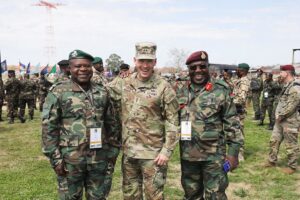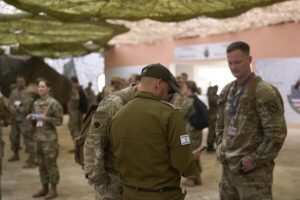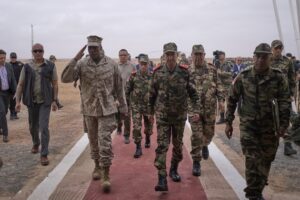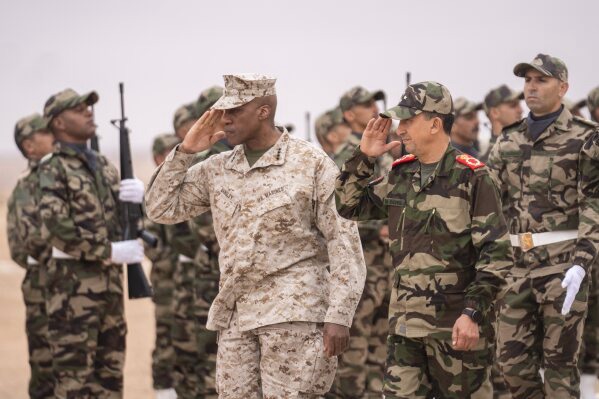In a marked shift from previous U.S. military doctrine, General Michael Langley, head of U.S. Africa Command (AFRICOM), emphasized the need for African partners to assume greater responsibility for their own security during the closing of the 21st African Lion military exercise on May 23, 2025.
“There needs to be some burden sharing,” Gen. Langley said, signaling a pivot away from U.S.-led governance-focused interventions toward helping African militaries reach the capacity for independent operations.
Held annually, African Lion is the largest joint military exercise on the continent. This year, it brought together troops from over 40 countries, who engaged in combat simulations, drone operations, satellite-guided strikes, and multinational coordination drills in the Moroccan desert.

In contrast to earlier years when U.S. messaging heavily emphasized democracy, development, and diplomacy, the 2025 exercise saw less talk of governance reform and more focus on strategic self-sufficiency.
“We need to be able to get our partners to the level of independent operations,” Langley told the Associated Press, linking this evolution to President Donald Trump’s Defense Department priorities: securing the homeland and shifting global responsibility to regional partners.
The adjustment comes amid efforts to “build a leaner, more lethal force” and possible reductions in U.S. military leadership across Africa, even as China and Russia expand their influence via military training programs and private security deployments.

Langley, who is set to exit his role later this year, acknowledged both gains and setbacks.
In past interviews, he was a vocal supporter of the “whole of government” approach, citing successes like Ivory Coast, where development-led programs helped reduce extremist violence. But he admitted such results are not consistent across the continent.
“I’ve seen progression and I’ve seen regression,” Langley said, underscoring that while holistic strategies work, they have not become the norm.

The current strategic transition reflects both geopolitical reality and fiscal pressure. As Russia cements its presence via mercenary networks and China invests heavily in African military partnerships, the U.S. is now urging its African allies to step up.
Still, Langley’s comments serve as a reminder of the complexity of the African security landscape — where poverty, environmental change, weak institutions, and extremist threats continue to intertwine.
As African Lion 2025 concludes, so too does an era of U.S. military engagement in Africa characterized by soft power ideals. What lies ahead is a harsher focus on military readiness, national responsibility, and strategic pragmatism.




